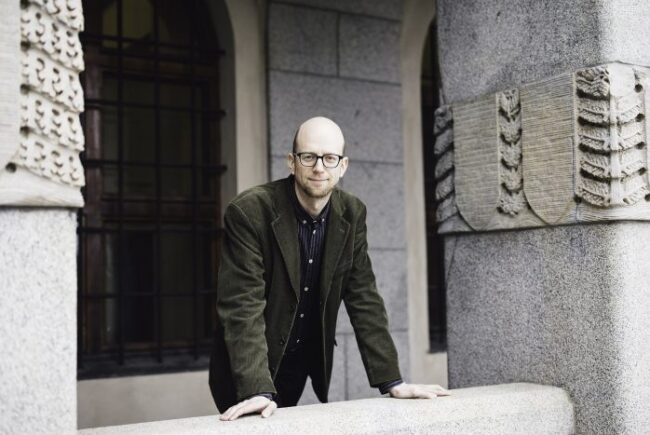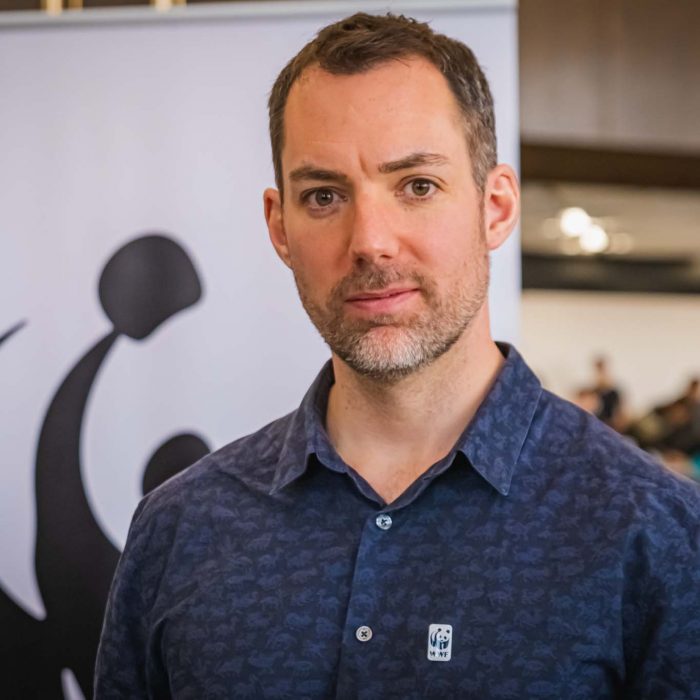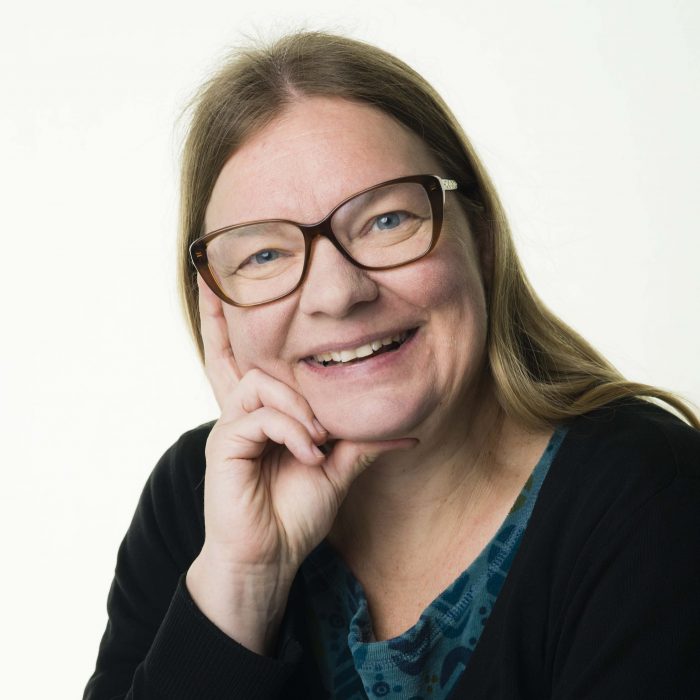

It is important to learn to differentiate between optimism, pessimism and hope, says researcher Panu Pihkala.
Environmental education: Could corona-anxiety lead to positive climate action?
Published:It is important to learn to differentiate between optimism, pessimism and hope, says researcher Panu Pihkala.
There are many interesting parallels between coronavirus and the climate crisis. But can the pandemic actually shift people’s attitudes or policies? A researcher, campaigner and teacher educator specialising in environmental issues share their hopes and concerns.
Panu Pihkala, Researcher of environmental theology:
“During spring 2020, most of us have heard the term “coronavirus anxiety”. Although referring to the global spread of the Covid-19 virus, the phenomenon also shares many characteristics with so-called eco-anxiety and climate anxiety.
These psychological phenomena can range from uncomfortable uncertainty to severe anxiety disorder, but generally eco-anxiety encompasses feelings of worry, fear and even terror or panic about environmental issues. As a researcher, I now get to witness how the themes I have been working on for years have been fast-forwarded and received a great deal of attention.
Just as with the ecological crisis, we are facing a global threat causing death anxiety, fear of contamination and even existential worry. But whereas climate change might still appear distant to some, this pandemic is a very tangible threat for almost everyone.
In Ecologies of Guilt, Tim Jensen writes that guilt is a keystone emotion in the climate conversation. What can we do to not feel guilty or at least to feel less guilty? An interesting mixture of guilt, shame and longing for redemption can also be detected in comments phrasing the pandemic as “nature’s revenge”.
Hope can create an experience of meaningfulness and help to overcome negativity bias, which is a real issue in the climate conversation.
The etymology of the word “crisis” refers to change, and this crisis also has potential for positive change. Solidarity, compassion and resolute acts during the pandemic might also generate a new sense of hope for the possibilities of climate action.
Hope can create an experience of meaningfulness and help to overcome negativity bias, which is a real issue in the climate conversation. The human mind tends to pay more attention to negatives than positives, and this can lead to catastrophising.
On the other hand, unfounded optimism is also dangerous. We should not think that some new scientific solution will miraculously save us from the climate crisis.
The crucial thing in my mind is to learn to differentiate between optimism, pessimism and hope. Adult education can play an important role in developing these emotional skills, which are important in dealing with both the virus and the environmental crisis.”
Panu Pihkala
- Adjunct Professor of Environmental Theology at the University of Helsinki in Finland.
- Researches the psychological and spiritual dimensions of environmental issues.
- In Finland, Pihkala has become known for introducing the concept of eco-anxiety.
- Published a book about eco-anxiety and hope in 2017.
- Pihkala’s report about climate anxiety
Matt Larsen-Daw, Environmental Campaigner:
“The current crisis is uncharted territory, and I think it does force people to reflect on and re-evaluate what is important.
This could mean simple things such as recognising the value of nature while being stuck at home. We know that nature scientifically has a calming effect on our minds, and right now people are discovering that for themselves. It has also become apparent that many of us do not need to constantly commute to the workplace – using digital tools makes both environmental and economic sense.
The definition of sustainability means something you can do forever without it leading to a depletion of resources. I see a window of opportunity to build up social understanding of what sustainability means in practice. What do we actually need to be comfortable and healthy?
I think the pandemic has also unified individuals in a way we often struggle to achieve in our campaigning. People tend to do what is best for them and their own family in the short term, but now I see a new mentality spreading; there is a realisation that, dealing with this crisis, we all need to do what is right for a wider group of people.
When there is a real need, the money gets found and drastic policy changes can take place.
For example, my street in suburban London started its own WhatsApp group during the lockdown and a lot of really great things have already come out of it: people are sharing resources and helping those isolated. Before that, we didn’t even know our neighbours!
This gives me hope, as the history of campaigning shows that the biggest changes are brought about by identifiable, large-scale community action. This community spirit could be a real stimulus for positive climate action.
Obviously, there is a real danger that the looming economic slump will mean more austerity measures, less focus on environmental protection and fewer opportunities for people to make positive choices if they are struggling with their own finances.
On the other hand, the last few months have shown that, when there is a real need, the money gets found and drastic policy changes can take place. People now know what crisis could mean in terms of government action and social community action, so decision-makers will likely face harder questions about why more is not done to fight climate change and biodiversity loss.”
Matt Larsen-Daw

- Works as the Education Manager for WWF UK, focusing on environmental education and youth engagement.
- Previously worked on the Treecharter project and Our Planet, a four-year collaboration between Netflix, Silverback Films and WWF.
- Has long experience of working with environmental campaigning and sustainable development.
Hannele Cantell, lecturer in Geography Education:
“My background is in geography, and that is also where my viewpoint on environmental issues stems from. I always look at global phenomena as a relationship between humanity and the environment. In my thinking, the word also encompasses social, economic and cultural environment.
It seems clear to me that the current pandemic is not merely about an infectious disease, but a wider environmental crisis. The situation evokes so many questions about human activity and life: how does this crisis affect the use of natural resources or global travel? What kind of world do we want to strive for?
My worry is that, if the focus remains strictly on death rates and face masks, the environmental discussion will be silenced.
One thing I hope will come out of this is a new interest in animal rights and animal welfare regulations. All the recent pandemics have started from humans exploiting and eating animals, but there has been very little discussion about this. Even if we overcome this crisis, a similar thing is likely to happen again in the future.
I always stress the importance of multidisciplinary thinking; we need several branches of science to tackle the environmental crisis.
I think the conversation about the impact of the coronavirus also lacks an understanding of the global scale of the crisis. In Finland, the news media only report on the situation in Europe and perhaps in the US – at the same time, millions of people in India are already starving due to the strict lockdown measures.
In my work as an educator, I always stress the importance of multidisciplinary thinking; we need several branches of science to tackle the environmental crisis. Perhaps the pandemic might spark a better understanding of the interconnectedness of the social economic, cultural and environmental aspects of life.
I also hope for more intergenerational learning to take place – for decades now, environmental education for adults has been grossly neglected. In my own teaching, I always try bringing together educators and people from different backgrounds and age groups, so they can learn from each other’s standpoints and challenges.”
Hannele Cantell

- Teacher educator in the Faculty of Education in University of Helsinki.
- Teaches the didactics of environmental sciences for future pre-school teachers, primary school teachers, secondary school teachers and adult educators.
- Specialises in the didactics of geography, interactive pedagogy and global and climate education.
Author







